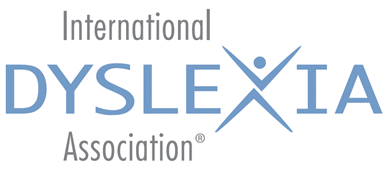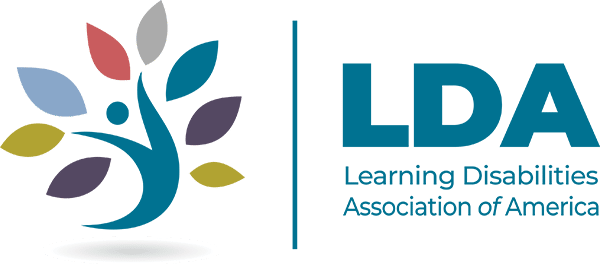Family Counseling in Ypsilanti MI
You’ll find family counseling in Ypsilanti MI that’s systems-focused and family-centered, helping you reduce conflict, strengthen communication, and coordinate care with schools and local supports. Counselors work collaboratively with your whole household, tailoring practical strategies for kids, teens, and parents, and connecting you to community resources and school-based services. You’ll set clear goals, practice structured skills, and track progress collectively. Keep going to see how local approaches and resources can support sustainable change for lasting wellbeing.
Why Choose Local Family Counselors in Ypsilanti
Because local counselors know Ypsilanti’s schools, community resources, and cultural dynamics, they can help your family connect care across home, school, and neighborhood systems. You’ll find practitioners who work with teachers, coaches, faith leaders, and social services to coordinate supports that respect your family traditions and cultural rhythms. You’ll participate in planning that values each member’s voice, so routines, celebrations, and expectations fit your household and local context. Counselors guide collaborative problem-solving, helping you map relationships, set shared goals, and track progress across settings. You’ll learn practical strategies to strengthen communication, preserve meaningful rituals, and reduce tensions like sibling rivalry by aligning caregivers and institutions around consistent responses. Choosing local counselors means tapping a network that’s familiar with Ypsilanti’s strengths and challenges, so your efforts to serve and support one another are efficient, connected, and sustainable. They’ll collaborate with you to adapt plans as circumstances and needs shift.

Start Your Journey Here
Offering In-Person and Teletherapy Options For You or a Loved One
Common Family Issues Addressed in Therapy
When families come to therapy, you’ll work with clinicians who view problems as patterns across relationships and settings rather than isolated symptoms. You’ll address dynamics like communication breakdowns, boundary confusion, life transitions, and the ripple effects of stress on caregiving roles. Collectively you’ll identify how marital conflicts affect parenting, how grief or financial strain reshapes routines, and how power imbalances create recurring tension. You’ll also attend to sibling rivalry that undermines cooperation and to generational differences that complicate expectations. In sessions you’ll map patterns, clarify strengths, and set shared goals that restore functioning and mutual support. You’ll be invited to reflect on roles, adjust interactions, and practice ways to protect children’s well‑being while honoring adult concerns. This collaborative, family-centered focus helps you restore stability, improve trust, and strengthen your capacity to care for one another within the broader community. You’ll leave with clearer commitments and renewed resilience collectively.
Therapeutic Approaches and Techniques Used
While every family brings unique patterns, we use evidence-based, systems-oriented methods that engage everyone and target interactional cycles rather than isolated symptoms. You’ll learn structural and strategic interventions that clarify boundaries and shifts in family role so responsibilities and influence flow more healthily. In sessions you’ll practice communication ladders, circular questioning, and reflective listening to reveal repetitive dynamics and invite collective problem-solving. We’ll teach emotion-focused techniques to strengthen attachment and improve emotional regulation across relationships, and cognitive-behavioral tools to reframe unhelpful narratives. The approach stays collaborative: you co-design goals, test small changes, and measure effects on interaction patterns. Therapy centers service-oriented values, encouraging each member to offer and receive support while honoring limits. You’ll leave with concrete skills to interrupt harmful cycles, reinforce helpful routines, and sustain compassionate leadership within your system. These practical techniques equip you to model respectful communication and resilience in everyday caregiving and growth.
Working With Children, Teens, and Parents
You and your family can use play therapy approaches to help children express feelings and practice interaction within a safe system. For teens, you’ll work on communication-building skills that reconnect them with parents and reduce conflict. Meanwhile, we’ll coach parents with practical support strategies that fit your family’s routines and strengths.
Play Therapy Approaches
Because play reveals relational patterns and coping strategies, therapists use a mix of child-led, directive, and family play techniques to assess needs, build skills, and strengthen parent‑child interactions. You collaborate with therapists who center systems, prioritize safety, and guide child therapy for attachment and emotional regulation. Sessions coach parents, model responses, and create rituals that shift patterns. Practical goals include co-regulation, boundaries, and trauma-sensitive pacing. You’ll practice reflective listening, structured play tasks, and homework that supports transfers to daily routines. Therapists invite your voice, set measurable steps, monitor progress, and celebrate growth mutually. Use the table to compare approaches with families.
| Approach | Focus | Outcome |
| Child-led play | Expression | Insight |
| Directive play | Skill practice | Mastery |
| Family play | Interaction repair | Cohesion |
| Integrative plan | Home strategies | Sustained change |
Teen Communication Building
After mapping family patterns through play, clinicians and parents shift focus to teen communication building to reshape boundaries, listening habits, and collaborative problem‑solving. You’ll engage in structured dialogues that honor adolescent perspective while maintaining family system integrity. Sessions teach you to co-create ground rules, model reflective listening, and scaffold problem-solving so teens feel heard and safe, strengthening teen trust and preserving sibling bonds. You’ll practice clear turn-taking, curiosity, and concise feedback. Tools include role-play, mapping conversations, and shared decision checklists:
- Use reflective prompts to validate emotions.
- Set compact practice sessions for real scenarios.
- Map interaction patterns to redesign responses.
This approach keeps interventions collaborative, systems-oriented, and service-minded, so you and your family can rebuild connection and mutual responsibility. Clinicians guide each step compassionately collectively.
Parenting Support Strategies
How can caregivers and clinicians work collaboratively to strengthen parenting across ages while keeping the family system central? You’ll pair practical behavior management with empathy, coach parents and youth, and map interactions so patterns shift. You’ll practice conflict resolution skills, set consistent routines, and involve siblings to reinforce cohesion. Meetings are strengths-based, brief, and solution-focused so change feels attainable.
| Focus | Action | Outcome |
| Children | Play-based coaching | Improved trust |
| Teens | Boundary-setting | Increased autonomy |
| Parents | Skill modeling | Consistent responses |
You’ll coordinate resources, share progress, and adapt plans mutually, keeping the family’s values and service orientation at the core. You’ll invite extended caregivers, track outcomes collaboratively, adjust behavior management strategies, and celebrate small wins so caregivers feel supported and children thrive in relational safety with humility and compassion.
Practical Steps to Start Family Counseling
When you’re ready to begin, gather your family to agree on shared goals, scheduling, and basic preferences so everyone feels involved from the start. You’ll outline clear aims—improving family communication and practicing conflict resolution—so sessions have purpose. Start by assigning roles: who coordinates appointments, who tracks progress, who shares reflections between meetings.
- Identify short-term goals and one measurable outcome
- Choose meeting cadence and a neutral facilitator or clinician
- Agree on confidentiality norms and respectful turn-taking
You’ll prepare a simple intake: strengths, stressors, routines, and touchpoints where systems break down. Frame conversations around service—how changes help each member and the whole. During early sessions, you’ll practice structured communication exercises and set homework that’s realistic. Revisit goals every few sessions, adjust strategies, and celebrate small shifts. This collaborative, systems-oriented approach keeps the family centered on shared care, accountability, and sustainable growth. Stay flexible and serve one another with steady commitment.
Local Resources, Schools, and Community Partnerships
If you want family counseling to stick, tap Ypsilanti’s network of schools, health agencies, and community organizations as coordinated partners in care: work with school counselors and social workers at Ypsilanti Community Schools or nearby districts to align goals and share relevant interventions, connect with Washtenaw County mental health services and community clinics for sliding-scale therapy or case management, and link to local nonprofits, faith-based groups, and Eastern Michigan University programs for parenting classes, youth activities, and respite support. You’ll coordinate referrals, share plans, and monitor outcomes with partners so families get consistent messages and supports. Prioritize Community engagement by inviting school staff, neighbors, and service providers to case conferences, training, and joint outreach. Use School collaboration agreements to define roles, data sharing, consent processes, and resource mapping so interventions fit daily routines. Together you’ll sustain supports, reduce barriers, and strengthen family resiliency over time across systems now.
Conclusion
When you choose local family counselors in Ypsilanti, you strengthen the whole system around your family. You’ll work collaboratively to spot patterns, build shared strategies, and align support across children, teens, parents, schools, and community partners. You’ll learn practical steps to improve communication, set boundaries, and resolve conflicts so everyone participates in change. Stay engaged, share feedback, and trust the process — collectively you’ll create healthier routines and resilient relationships that last for years ahead.
Experienced and Highly Qualified Psychotherapy and Psychological Testing Services







